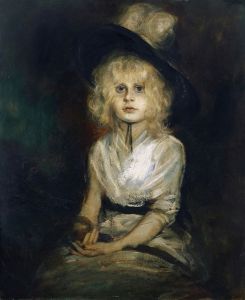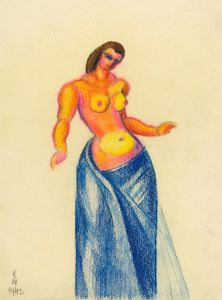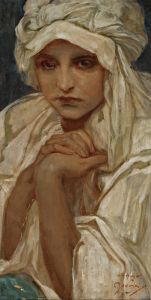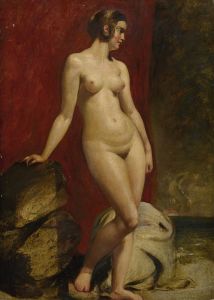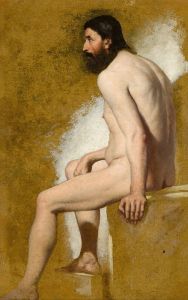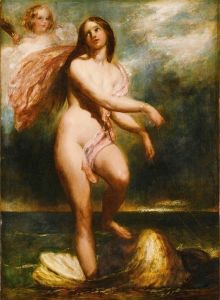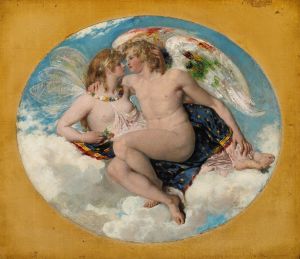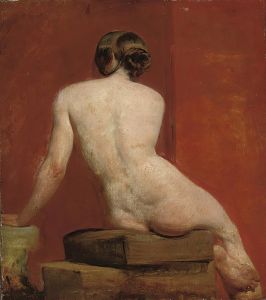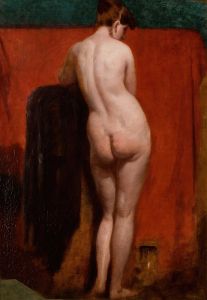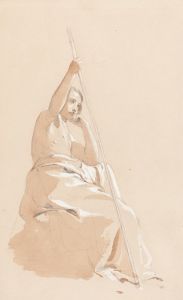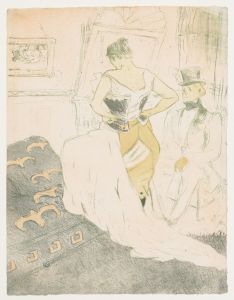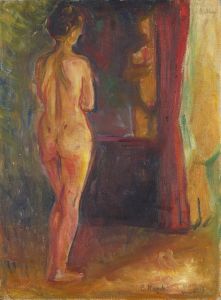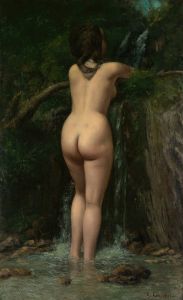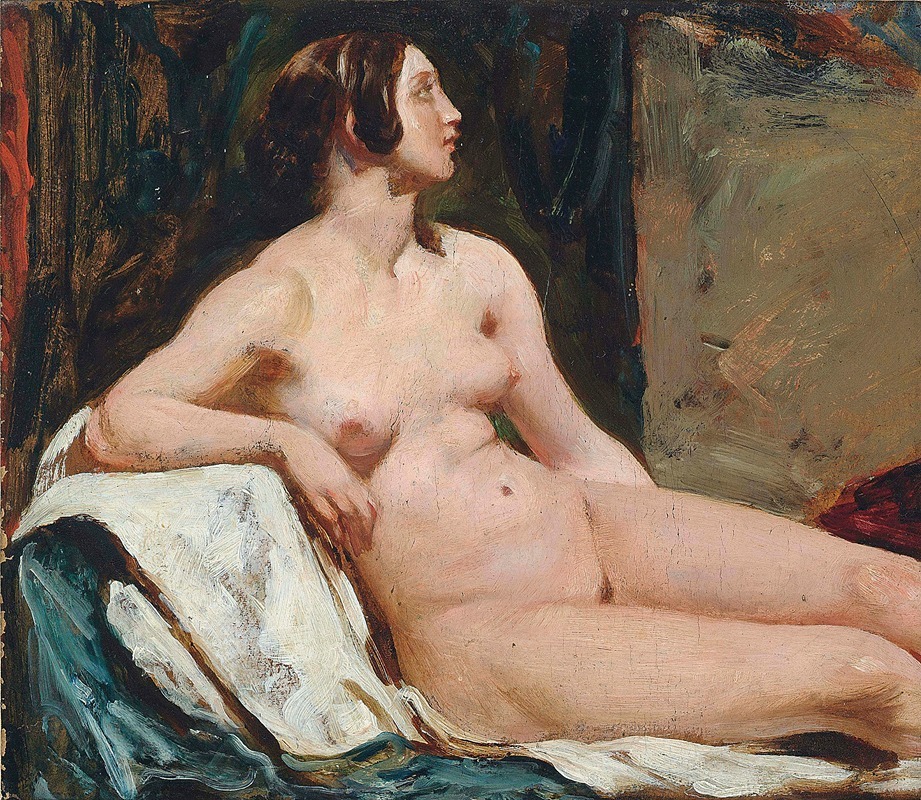
Female nude
A hand-painted replica of William Etty’s masterpiece Female nude, meticulously crafted by professional artists to capture the true essence of the original. Each piece is created with museum-quality canvas and rare mineral pigments, carefully painted by experienced artists with delicate brushstrokes and rich, layered colors to perfectly recreate the texture of the original artwork. Unlike machine-printed reproductions, this hand-painted version brings the painting to life, infused with the artist’s emotions and skill in every stroke. Whether for personal collection or home decoration, it instantly elevates the artistic atmosphere of any space.
William Etty was a renowned English artist of the 19th century, celebrated for his depictions of the human form, particularly the nude. Among his works, "Female Nude" stands out as a testament to his skill and dedication to capturing the beauty and complexity of the human body. Etty's approach to the nude was both academic and sensual, reflecting his deep admiration for the Old Masters and his desire to elevate the genre within the British art scene.
Etty was born in 1787 in York, England, and showed an early aptitude for drawing. He moved to London in 1807 to study at the Royal Academy of Arts, where he was influenced by the works of Titian, Rubens, and other great European painters. Etty's commitment to mastering the human form led him to spend countless hours studying and sketching from life, a practice that was central to his artistic philosophy.
"Female Nude" exemplifies Etty's mastery of color and form. His use of rich, warm tones and careful attention to the play of light and shadow on the skin are characteristic of his style. Etty's nudes often feature a sense of realism combined with an idealized beauty, capturing both the physical presence and the emotional depth of his subjects. This painting, like many of his works, demonstrates his ability to convey the softness and vitality of flesh, a skill that set him apart from many of his contemporaries.
Etty's work was not without controversy. During his lifetime, the depiction of the nude figure was a contentious subject in British art, often criticized for being indecent or immoral. Etty, however, defended his work by arguing that the nude was a legitimate subject for art, one that had been celebrated by the great artists of history. He believed that through the study of the human form, artists could explore themes of beauty, mortality, and the divine.
Despite the criticism, Etty's work gained recognition and respect over time. He was elected a full member of the Royal Academy in 1828, a testament to his skill and the impact of his work on the British art scene. His paintings, including "Female Nude," are now appreciated for their technical brilliance and their contribution to the acceptance of the nude in British art.
Today, Etty's "Female Nude" is regarded as an important work in the history of British painting. It reflects the artist's dedication to his craft and his belief in the power of art to transcend societal norms and explore the depths of human experience. Etty's legacy is one of artistic courage and innovation, and his nudes continue to be studied and admired for their beauty and technical excellence.





